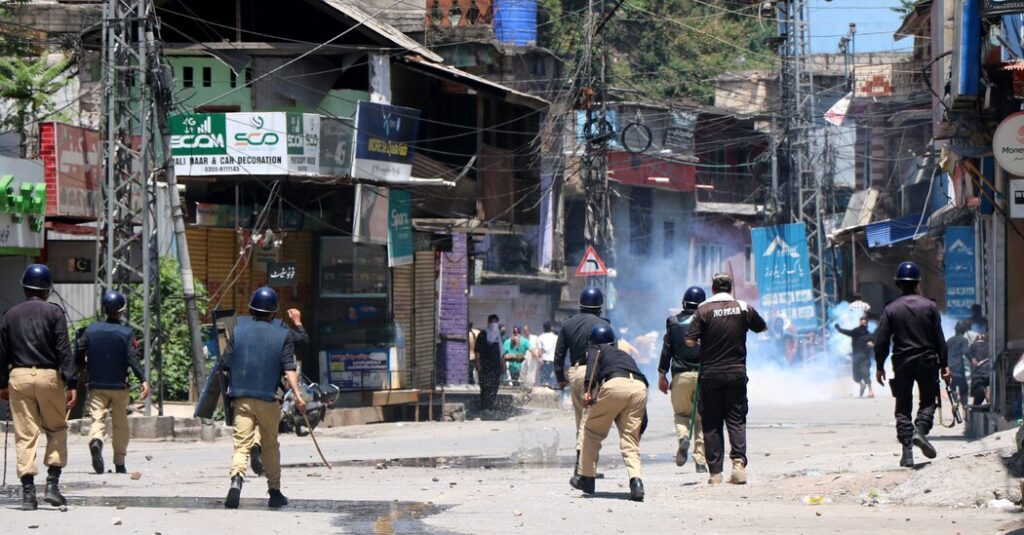Massive protests have erupted in Pakistan-controlled Kashmir, sparked by anger over soaring electricity and flour prices in the region, which has long suffered economically due to its status as a conflict zone. There is.
Prime Minister Shehbaz Sharif convened an emergency meeting in Pakistan's capital, Islamabad, on Monday to quell growing unrest that has led to widespread strikes that left one police officer dead and 90 injured.
Authorities have cut internet services in many areas and closed schools in the city as protesters plan to march on the provincial capital Muzaffarabad this week.
“I have never seen such a large-scale riot in Pakistan-administered Kashmir,” said Mubashar Naqvi, a Muzaffarabad resident and teacher at Azad Jammu and Kashmir University. “This protest is unique in that it unites people from all walks of life to demand basic necessities.”
The picturesque but highly militarized Himalayan region of Kashmir has been claimed by both Pakistan and India since independence from Britain in 1947, and has been the subject of three wars between the estranged neighbors. woke up.
The current unrest poses a challenge for the Pakistani military and Islamabad's civilian leadership, which maintains a large presence in the region. Pakistan considers Kashmir to be a disputed territory whose status should be resolved through a UN-mandated referendum that would allow Kashmiris to choose whether to be part of Pakistan or India.
But Pakistan's government has faced criticism for suppressing local movements seeking full independence. While there have been no strong calls for independence amid the current wave of unrest, residents said the protests reflected a general feeling of discontent.
“There is strong anger and dissatisfaction among Kashmiri youth due to political disillusionment, high inflation and severe unemployment,” Naqvi said.
The unrest began on Friday when a group of activists, mainly traders, went on strike in Muzaffarabad, which quickly led to violent clashes with law enforcement officials. The arrest of Kashmiri activists in overnight raids has spurred calls for a strike.
Kashmiri authorities have called on protesters not to resort to violence. Local Government Minister Faisal Mumtaz Rasool said plans to deploy paramilitary forces had been scrapped as talks with demonstrators continued.
But the real solution lies with Pakistani state officials, he said. “The huge needs of the people – the demand for cheap electricity and the elimination of power outages – fall under the purview of the Pakistani government,” Rasool said.
The region is highly dependent on government jobs and receives little private investment due to its status.
The streets of Muzaffarabad were quiet on Sunday as the protests entered their third day. Security forces, identified by their black bandanas, were highly visible at checkpoints. Residents watched from behind closed windows as their daily lives collapsed and supplies dwindled.
To ease the hardship, protest organizers said essential shops could open for three hours each night. Ayesha Bibi (34), a resident of Muzaffarabad, expressed her distress over the needs of her young child.
“She hasn't had milk for two days,” Bibi said. “We can endure hunger, but we cannot endure being denied basic services such as affordable electricity and flour.”
Another resident, Siddiq Haidari, 68, lamented the extensive damage caused by the clashes. “Every house here has been damaged,” he said.
Jalaluddin Mughal Empire Contributed to the report.

